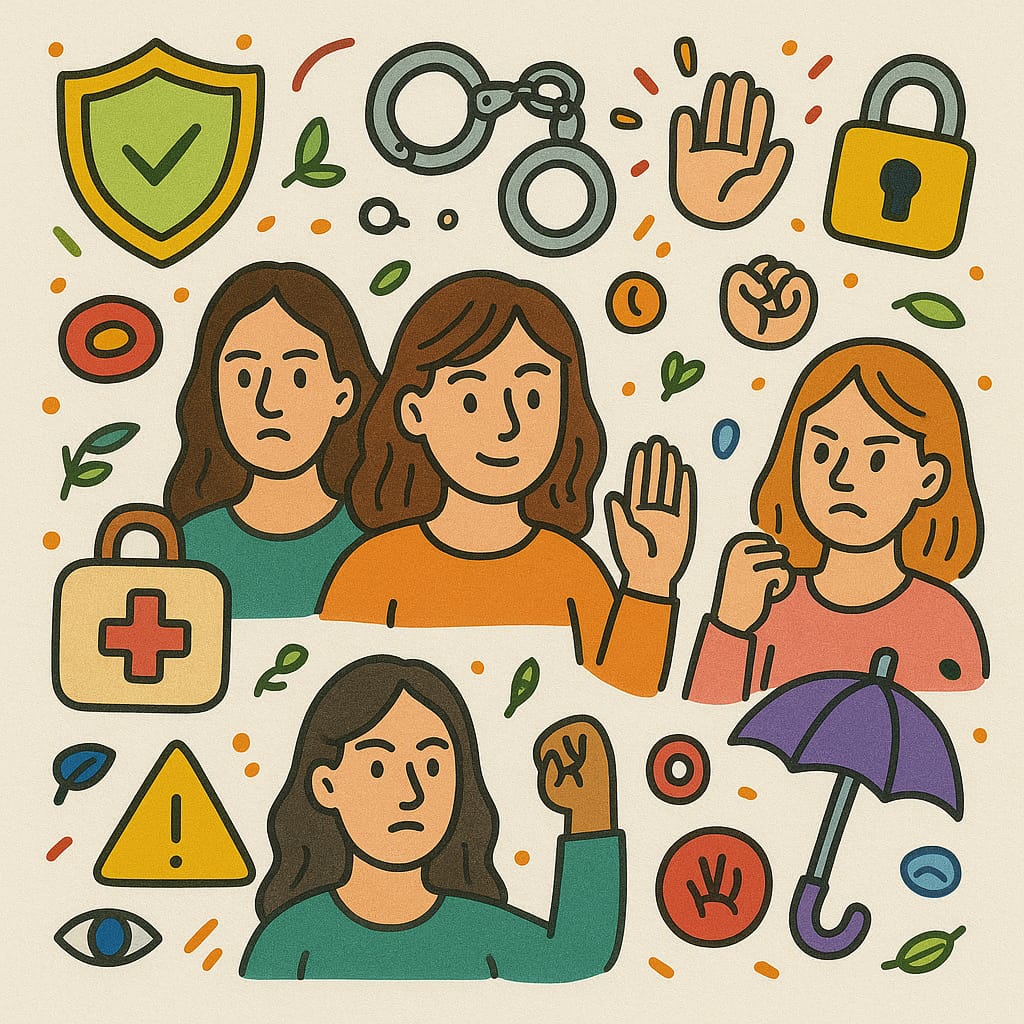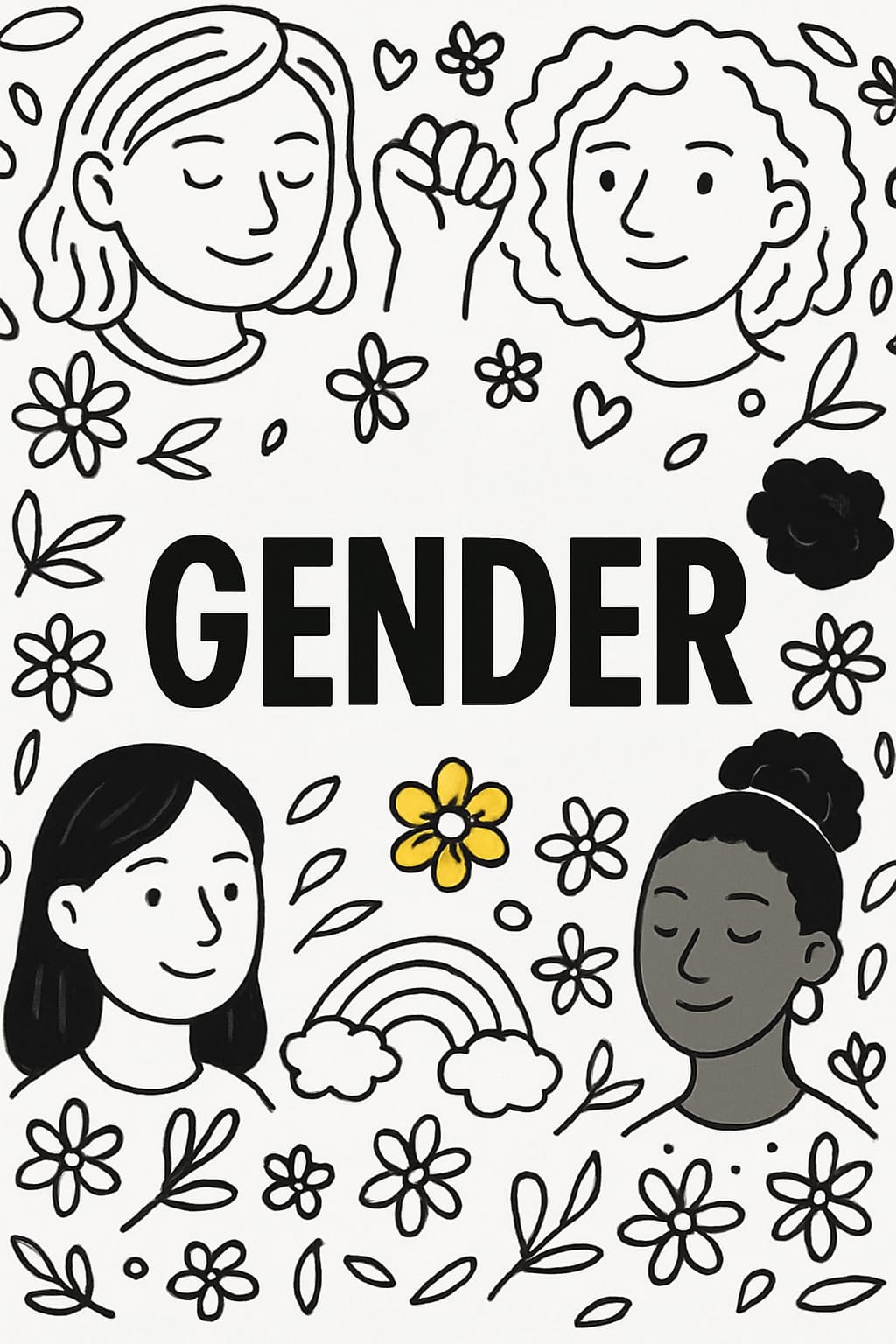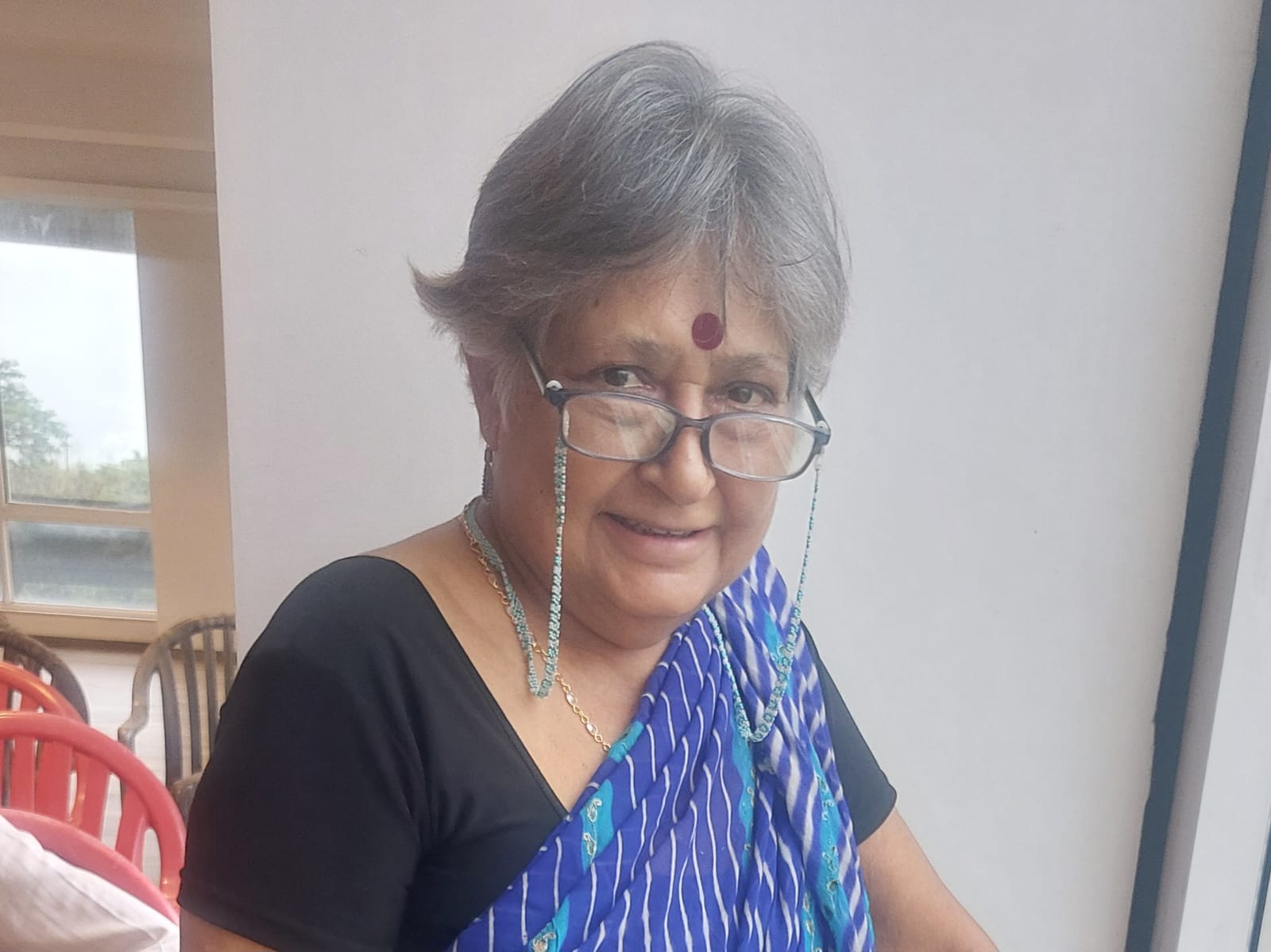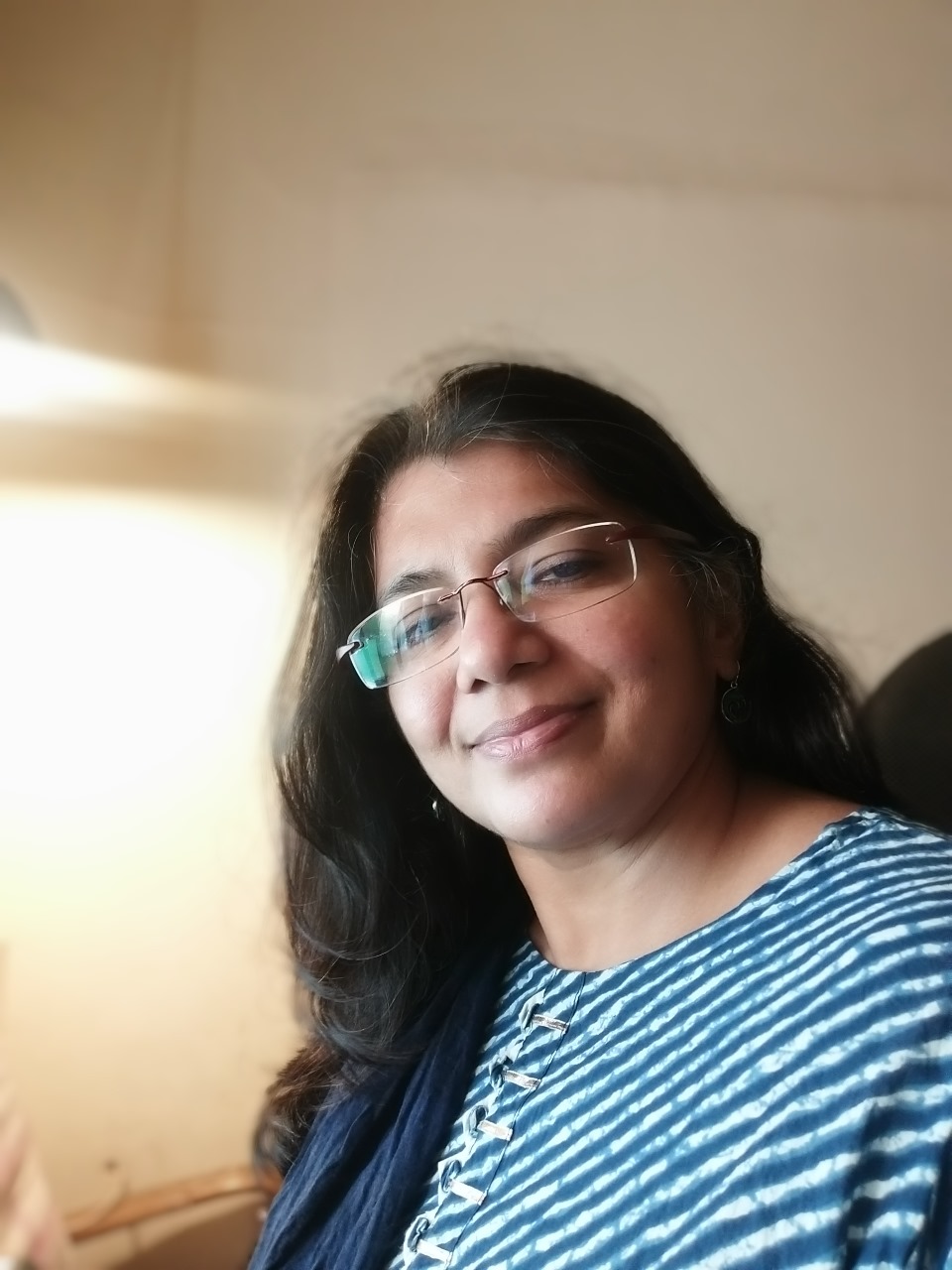A Trust registered in 1985 by a group of women who saw the need for focused, practical research and training and communication for the non-profit sector. Shakti has always explored areas that need to be researched and also talked about.
Empowering Lives through Financial Education…One Person, One Family, One Community at a time

Shakti has been working on themes related to Women and Health. The themes discussed and researched in the earlier years were: "Who Determines Women's Health: The Social Trap"; "Campaign against Amniocentesis"; "Occupational Health Hazards of Self-employed Women"; "Blind Spot in Health Policy" "Ill health, Early death-Women's Destiny?" These were major contributions to developing a perspective and network of women health activists in India.
Shakti was one of the first to do sexual behaviour studies when India starting talking about HIV/AIDS. Networking has been Shakti's strengths. Starting with women's health issues it enlarged its scope to do research, training and networking with those working on a variety of issues with different perspectives. Besides, Shakti used to have a newsletter “NGO connect” to network with NGOs in India.

At Shakti, it has always been about empowering women, through participation, through research, through training and it will continue to be focus as well as of our concern to us.
Recognising the importance of engaging in the development debate- climate change, sustainability, livelihoods, employment and social security, Shakti is making efforts to engage women and girl as students, as interns/volunteers, as citizens to be part of implementation, monitoring and evaluation processes and policies in India today.
At the same time, Shakti continues its focus on consultancy and training, research and communication and provide the same to anyone who would look to research as interesting, innovative and ---areas of debate and discussion.
We believe that every child is unique and possesses individual strengths, interests, and learning styles.
Play-based learning promotes creativity, problem-solving skills, collaboration, and critical thinking.
We strive to create an atmosphere where every child feels valued, respected, and included.
Workshop on “Feminist Perspectives on Women, Health and Reproduction in India”. This was first such workshop possibly in India then.
A Publication as an outcome of the Workshop “In Search of Our Bodies – A Feminist Look at Women Health And Reproduction In India” Contributions from eminent academicians and researchers- Dr. Vibhuti Patel, Padma Prakash, Malini Karkal, Mira Chatterji, and Dr. Mira Savara
A monthly Newsletter ‘Campaign News’ To keep women activists & researchers in touch with the initiatives taken by women’s groups on health related issues, circulated to over 1500 activists in India & abroad.
"Women and Naturopathy"
Workshops organised with Rural NGOs as Women have often target for new drugs and a need to bring an alternative perspective to the health movement. Workshops were organised in rural women’s health centres using the framework of ‘Self-Help’. Traditional remedies were documented. The Proceedings of the Workshops were published in “Women and Naturopathy”.
"Women and Appropriate Technology"
The Intermediate Technology Group introduced new technology in the wool spinning industry called charkha spinning. Shakti researched how a new innovation was introduced for women; attempts were made to understand the social challenges faced therein and to develop strategies for improving the acceptance of the technology among women.
Women in Unorganised sector:
A Study to understand the nature of organisations that are helpful to women in their occupation and to develop public policy for such groups. Women in five occupational groups were studied- fisherwomen, homeworkers, women caterers, domestic servants and sweepers and the organisations covered were unions, women’s organisations, caste-based organisations, an NGO and a cooperative. The study was funded by the Ford Foundation. The Study indicated that that the sort of organisation was related to the nature of the occupation, whether individual or family work involved, and the strategies to assist them should take this into account. The study was published as a book.
Women in Unorganised sector:
A Study to understand the nature of organisations that are helpful to women in their occupation and to develop public policy for such groups. Women in five occupational groups were studied- fisherwomen, homeworkers, women caterers, domestic servants and sweepers and the organisations covered were unions, women’s organisations, caste-based organisations, an NGO and a cooperative. The study was funded by the Ford Foundation. The Study indicated that that the sort of organisation was related to the nature of the occupation, whether individual or family work involved, and the strategies to assist them should take this into account. The study was published as a book.
Sexual Behaviour Studies The first Sexual Behaviour studies in India were done by Shakti to develop communication strategies for prevention of HIV/AIDs. Pioneering studies were to understand the sexual behaviour patterns and attitudes towards sexuality amongst youth, blue collar workers, white collar workers, tribal as well as rural population to cover the State of Maharashtra. A total of 4,000 men and women were covered in Pune, Nasik, Thane and the rural pockets outside Pune. Funded by the Ford Foundation, Shakti worked closely with many NGOs and the Directorate of Health Services, Govt. of Maharashtra (1994-8). A two-day workshop on AIDS awareness and Sexual Research in Marathi was organized on Jan 17, 18 1995 in Pune attended by voluntary organizations from Mumbai, Pune, Miraj, Nagpur, Beed, Sangli, Nanded, Baramati, Aurangabad and Ahmednagar.
A Publication as an outcome of the Workshop “In Search of Our Bodies – A Feminist Look at Women Health And Reproduction In India” Contributions from eminent academicians and researchers- Dr. Vibhuti Patel, Padma Prakash, Malini Karkal, Mira Chatterji, and Dr. Mira SavaraLorem ipsum dolor sit amet, consectetur adipiscing elit. Ut elit tellus, luctus nec ullamcorper mattis, pulvinar dapibus leo.
A monthly Newsletter ‘Campaign News’ To keep women activists & researchers in touch with the initiatives taken by women’s groups on health related issues, circulated to over 1500 activists in India & abroad.
Workshops organised with Rural NGOs as Women have often target for new drugs and a need to bring an alternative perspective to the health movement. Workshops were organised in rural women’s health centres using the framework of ‘Self-Help’. Traditional remedies were documented. The Proceedings of the Workshops were published in “Women and Naturopathy”.
The Intermediate Technology Group introduced new technology in the wool spinning industry called charkha spinning. Shakti researched how a new innovation was introduced for women; attempts were made to understand the social challenges faced therein and to develop strategies for improving the acceptance of the technology among women.
Shakti also assisted groups working on Sex Trafficking. Shakti is actively supporting the project of Apne Aap Women Worldwide, a project aimed to end sex trafficking. Apne Aap has set up a centre for women in sex work in Kolkata, and Shakti supported their endeavour to set up a similar community centre in Mumbai. Apne Aap perspective is to empower women to run their own community centre, a credit centre and to develop a succession policy for their children. Shakti was involved in coordinating visits to consider world-wide coalitions of groups in the fields of Women & Violence and AIDS.
Mira Savara (1980) ‘Strings against Oppression’ Economic and Political Weekly, Vol-XV, No. 13, March 29
Mira Savara, Sujatha Gothoskar (Year) ‘An assertion of Womenpower – Organizing the Landless Women in Maharashtra’
View More

Over 25 Years Of Experience In Research, Writing, Teaching And Communications. Experience With Volunteers, Social Development, And Community Organizations. Conducted Training Programmes For Corporate And Educational Institutions On Health, Gender, Communications, Team Building, Communications, etc. Able To Relate To People At All Levels Of Management And NGOs. Managed Teams At Corporate, NGOs &Research, Educational Settings.Travelled All Over The World And India
Founding Trustee

Over 25 Years Of Experience In Teaching and Research. Experience With Student Volunteers And Community Outreach Programmes. Research and Training Expertise; Ten PhD Awards to Credit. Experience with Administrative Responsibilities and Duties. Associated with Educational Institutions and NGOs.
Managing Trustee
Connect with Us: Reach Out and Let's Chat!
B-10, Sun N Sea, 25, J P Road, Versova Andheri West, Mumbai, Maharashtra, 400 061
